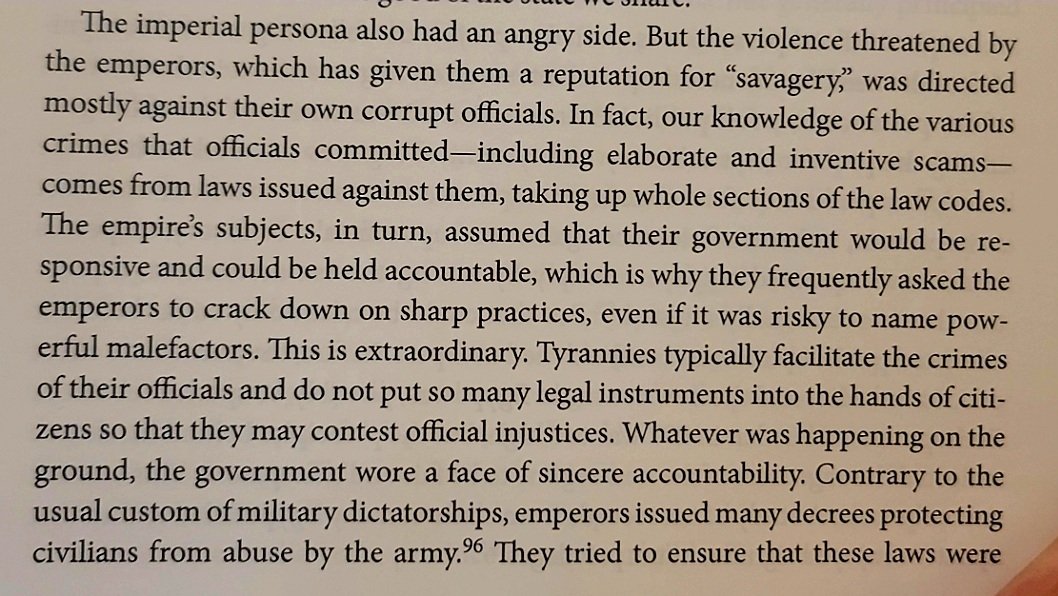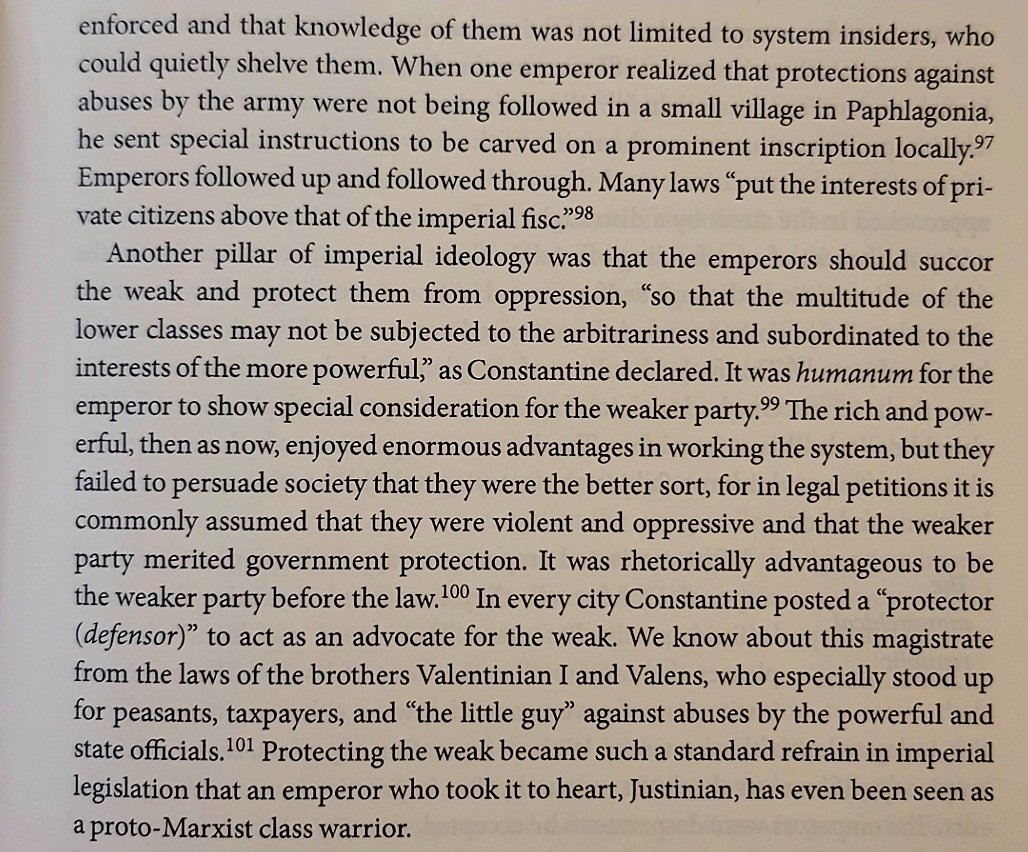Petr
Administrator
I came upon this extraordinary exchange, which was the fuse that lit the bloody Nika riots (that ended with tens of thousands of dead people and a large part of Constantinople burned up), in Thomas Hodgkin's multi-volume magnum opus Italy and her Invaders, written in the late Victorian era.
We can observe that the dispute starts to turn nasty when the emperor and the people begin to Jew-call each other...
 penelope.uchicago.edu
penelope.uchicago.edu
It was evident, soon after his accession, that the husband of Theodora meant to favour the Blue party, and in a few years, a long list of grievances was recorded in the hearts of the opposite faction against him. Such was the state of feeling in the multitude — the Blues jubilant with imperial favour, the Greens sore at heart and indignant against their oppressor, a multitude of the country-folk, having not as yet taken sides definitely with either colour, but remembering and cursing the tyrannical acts which had driven them from their immemorial homes — when on the morning of the Ides of January, 532,23 the august Emperor took his seat in the podium and commanded the races to begin. Race after race, till two races had been run, was disturbed by the clamours of the angry Green faction. Their fury was chiefly directed against the Grand Chamberlain and Captain of the Guard, Calopodius,24 to whom they attributed their ill‑treatment. At length Justinian, worried out of his usual self-control, began to argue with the interrupters; and so the following extraordinary debate took place, in shrill shouts to and from the Imperial podium.25
Dialogue between the Emperor and the Green party.
With that the whole faction of the Greens streamed out of the Hippodrome, leaving the Emperor and the Blue party sole occupants of the long rows of stone subsellia.37
The day was drawing towards a close when this multitude of enraged Orientals poured forth into the streets of Constantinople. Soon it was evident that the tumults which had embittered the later days of Anastasius were to be renewed, on a larger scale, and with more appalling circumstances, by reason of the crowds of hungry, idle, and exasperated rustics who had flocked into the town.
We can observe that the dispute starts to turn nasty when the emperor and the people begin to Jew-call each other...
Italy and Her Invaders • Book IV Chapter 14
The complete 8‑volume work by Thomas Hodgkin is onsite. Part of a very large site on Italy and Greco-Roman Antiquity.
It was evident, soon after his accession, that the husband of Theodora meant to favour the Blue party, and in a few years, a long list of grievances was recorded in the hearts of the opposite faction against him. Such was the state of feeling in the multitude — the Blues jubilant with imperial favour, the Greens sore at heart and indignant against their oppressor, a multitude of the country-folk, having not as yet taken sides definitely with either colour, but remembering and cursing the tyrannical acts which had driven them from their immemorial homes — when on the morning of the Ides of January, 532,23 the august Emperor took his seat in the podium and commanded the races to begin. Race after race, till two races had been run, was disturbed by the clamours of the angry Green faction. Their fury was chiefly directed against the Grand Chamberlain and Captain of the Guard, Calopodius,24 to whom they attributed their ill‑treatment. At length Justinian, worried out of his usual self-control, began to argue with the interrupters; and so the following extraordinary debate took place, in shrill shouts to and from the Imperial podium.25
Dialogue between the Emperor and the Green party.
The Green party. 'Many years mayest thou live, Justinianus Augustus. Tu vincas.26 O only good one, I am oppressed. God knows it, but I dare not mention the oppressor's name lest I suffer for it.'
The Emperor's answer to the people came back from the lips of a stalwart Mandator who stood beside his throne, while a busy short-hand writer (Exceptor) at once began to take down all the words of this strange dialogue, that they might be enrolled in the official Acta of the Empire.
Mandator. 'Whom you mean, I know not.'
The Greens. 'O thrice August one, he who oppresses me will be found at the shoemakers' shops.'28
Mandator. 'I know not whom you are speaking of.'
The Greens. 'Calopodius the Guardsman oppresses me, O Lord of all.'
Mandator. 'Calopodius has no public charge.'
The Greens. 'Whatever he may be, he will suffer the fate of Judas. God will reward him according to his works.'
Mandator. 'Did you come hitherto to see the games or only to rail at your rulers?'
The Greens. 'If any one oppresses me, I hope he will die like Judas.'
Mandator. 'Hold your peace, ye Jews,29 ye Manicheans, ye Samaritans.'
29 A play on the words. The Greens hope that Justinian may die like Judas. He thereupon calls them Judaei.
The Greens. 'Do you call us Jews and Samaritans? We all invoke the Virgin, the Mother of God.'
Some sentences of scarcely intelligible religious abuse between the two parties to the dialogue follow. Then says the Mandator — 'In truth, if you are not quiet I will cut off your heads.'
The Greens. 'Be not enraged at the cry of the afflicted. God himself bears all patiently. [How can I appeal to you in your palace?] I cannot venture thither, scarcely even into the city except by one street when I am riding on my mule.'30
Mandator. 'Every one can move freely about in this city, without danger.'
The Greens. 'You talk of freedom, but I do not find that I can get it. Let a man be ever so free, he is suspected of being a Green, he its taken and beaten in public.'
Mandator. 'Gallows-bird! have you no care for your own lives, that you thus speak?'
The Greens. 'Take off that colour [the emblem of the Blues] and do not let justice seem to take sides.31 . . . I wish Sabbatius [the father of Justinian] had never been born. Then would he never have begotten a murderous son. This is the sixth murder32 apparently that has happened at the Yoking-place.33 In the morning he was looking on at the games, and in the evening twilight, O Lord of all, he had his throat cut.'
The Blues here interposed with angry denial. 'All the murders on the race-course have been committed by you alone.'
The Greens. 'When you murder you run away.'34
The Blues. 'You murder and throw everything into confusion. All the murders on the race-course are your work alone.'
The Greens. 'Lord Justinian! They stir us up to strife, but no one kills them. Remember, even if you do not wish to do so, who slew the wood-seller at the Yoking-place, O Emperor!'
Mandator. 'You slew him.'
The Greens. 'Who slew the son of Epagathus, O Emperor?'
Mandator. 'Him too you slew, and then tried to throw the blame on the Blues.'
The Greens. 'Again! and again! Lord have mercy on us! Truth is trodden under foot by a tyrant. I should like to throw these things in the teeth of those who say that God governs the world. Whence then this villainy?'
Mandator. 'God cannot be tempted with evil.'
The Greens. '"God cannot be tempted with evil." Then who is it that allows me to be oppressed? Let any one, whether Philosopher or Hermit, read me this riddle.'
Mandator. 'Blasphemers and accursed ones! when will ye be quiet?'
The Greens. 'If your Majesty will fawn upon that party,35 I hold my peace, though unwillingly. O Thrice August one, I know all, all: but I am silent. Farewell, Justice: you have no more business here. I shall depart hence, and then I will turn Jew. It is better to become a Heathen than a Blue, God knows!'36
36 Μᾶλλον δὲ Ἐλληνίσαι συμφέρει καὶ μὴ Βενετίσαι, ὁ Θεὸς οἶδεν.
The Blues. 'We hate the very sight of you. Your petty spite exasperates us.'
The Greens. 'Dig up the bones of the [murdered] spectators.'
With that the whole faction of the Greens streamed out of the Hippodrome, leaving the Emperor and the Blue party sole occupants of the long rows of stone subsellia.37
The day was drawing towards a close when this multitude of enraged Orientals poured forth into the streets of Constantinople. Soon it was evident that the tumults which had embittered the later days of Anastasius were to be renewed, on a larger scale, and with more appalling circumstances, by reason of the crowds of hungry, idle, and exasperated rustics who had flocked into the town.
Last edited:


